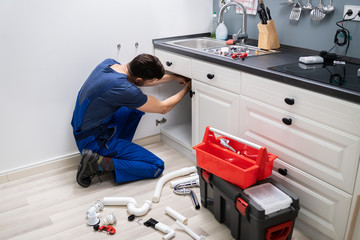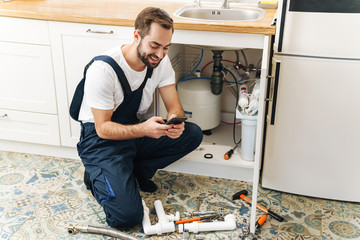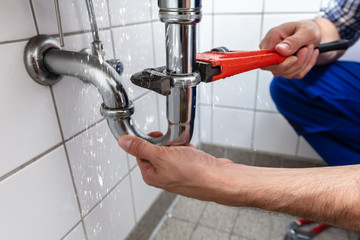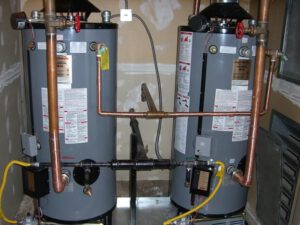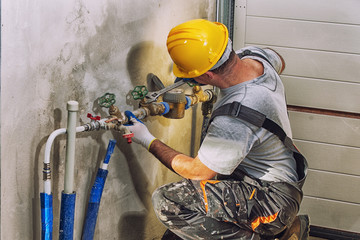If you are interested in becoming a plumber, you will find that there are a number of different options for you. You can become an apprentice, a journeyman, or a master. Each of these career paths can pay well, but they also require you to have the proper education. There are a few things you should know about working as Plumbers.
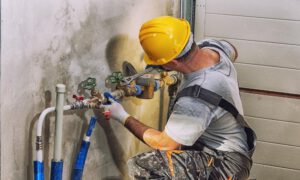
Apprentice plumbers learn to diagnose and repair plumbing problems. In addition, they learn to install and maintain systems. They also learn about the different materials and tools they will use on the job. They may also attend workshops to further their education.
Apprentice plumbers typically work long hours during training. They must be able to work in awkward spaces and have physical agility. They must also be able to lift heavy equipment.
Successful apprentice plumbers have a good eye for detail. They are also detail-oriented and have good problem-solving skills. They can work with other team players to ensure a smooth project. They will also be responsible for developing cost estimates for customers.
These apprentices usually earn a wage during their training. They may also work overtime. They learn all about the plumbing industry by working with experienced plumbers and attending workshops. In addition, they learn how to fix dripping fixtures; repair damaged pipes and clean drains. They are also given the opportunity to earn a license.
Apprentices are usually trained by a local school, trade union, or private company. The minimum requirement to become an apprentice is a high school diploma. The program is usually around four years. They are also required to take an exam that is specific to the plumbing field.
They will have to read blueprints and follow directions. They will learn about codes and how to install large steel pipes. They will also learn about the importance of labor and the value of materials.
A plumber may also be required to repair and install pipes that are leaking. This requires a strong work ethic and a good understanding of how plumbing systems work.
Journeyman plumbers install pipes, plumbing fixtures, and drainage systems. They use hand and power tools to perform their duties. They may also work on plumbing systems maintenance or renovation projects. They can choose to work for themselves or for companies.
Many states require apprenticeship programs. Once they have completed the program, they can become licensed. Often, they will be asked to take an exam to demonstrate that they have the skills necessary to perform plumbing work.
In most states, journeyman plumbers must have at least three years of experience. Afterward, they can apply for a master plumber license. The requirements for the master plumber license vary by state. For example, a master plumber must hold a professional engineer license and at least four years of experience as a journeyman plumber. On the other hand, a master plumber must have five years of experience.
The license is awarded by the Department of Consumer and Business Services, which oversees the Building Codes Division. In addition to licensing, it is important for plumbers to maintain adequate insurance.
In Illinois, a journeyman plumber is required to have at least two years of experience. An applicant must provide proof that he or she has completed at least 72 hours of approved training and is a licensed apprentice.
A journeyman must have at least three years of experience. He or she must also pass a business or trade exam. After completing the program, a journeyman can apply for a master plumber license.
A journeyman must have at least one year of experience. He or she must also pass the state business examination.
Master plumbers have a variety of responsibilities. They repair and install plumbing fixtures, pipes, and appliances. They also perform maintenance on these systems and even design new ones. They can work in homes, businesses, and government buildings. They are also known for their expertise in solar and gas fittings.


